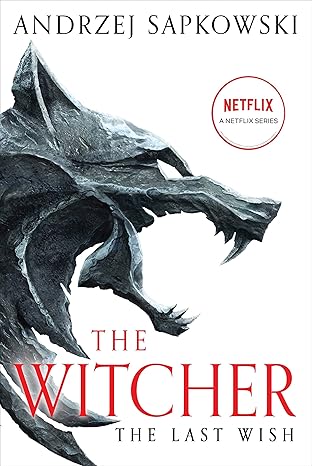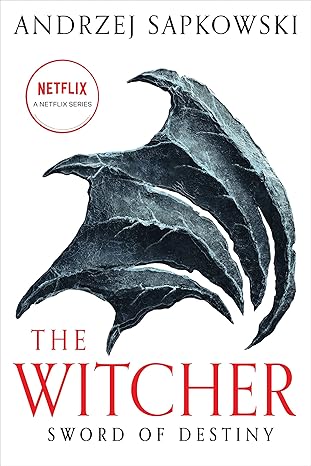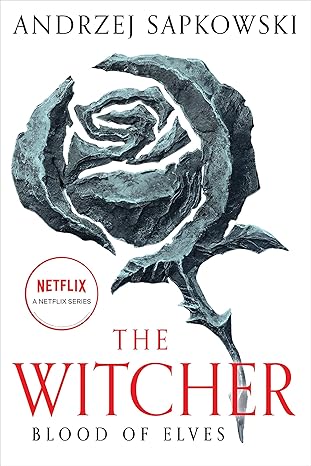
How to Read Andrzej Sapkowski's Books on Difference between publication and story order
How to Read Andrzej Sapkowski's Books on Difference between Publication and Story Order
Estimated Reading Time: 10-12 minutes
Introduction
Andrzej Sapkowski, a Polish author born in 1948, is best known for his epic fantasy series, "The Witcher." His works have transcended cultural boundaries, captivating readers worldwide and inspiring video games, a television series, and graphic novels. Sapkowski's unique storytelling blends Slavic folklore with rich character development and complex moral dilemmas, making his narratives not only entertaining but also philosophically engaging.
One of the intriguing aspects of Sapkowski's work is the difference between the publication order of his stories and the chronological order of events within the narrative. This guide will explore his major works—The Last Wish, Sword of Destiny, and Blood of Elves—and how understanding their publication and story order enhances our appreciation of the themes and character arcs he presents.
Why Andrzej Sapkowski's Perspective Matters
Sapkowski's approach to storytelling is distinctive for its non-linear narrative structure and its deep philosophical underpinnings. Unlike many traditional fantasy authors, he weaves complex moral questions into the fabric of his tales, challenging readers to consider the implications of their choices and the nature of good and evil. His works often reflect on the human condition, the consequences of power, and the intricacies of fate and free will.
By examining the difference between publication and story order, readers gain insights into how Sapkowski constructs his universe and develops his characters. This understanding allows us to appreciate the depth of his storytelling and the philosophical questions he raises, setting him apart from other authors in the genre.
Overview of Recommended Books
The Last Wish
The Last Wish is a collection of interconnected short stories that introduces Geralt of Rivia, a monster hunter navigating a world filled with magic, political intrigue, and moral ambiguity. Published in 1993, this book serves as the starting point for Sapkowski's universe, though its stories are not strictly linear.
Main Themes and Arguments:
- The nature of destiny and choice
- The moral complexities of good versus evil
- The consequences of human actions on the world
Historical Context and Significance: Set against the backdrop of post-communist Poland, The Last Wish reflects societal changes and the search for identity. Sapkowski's blend of folklore and modernity resonates with readers, making his work relevant across cultures.
Key Insights and Takeaways:
- Moral Ambiguity: Characters are not purely good or evil, prompting readers to question their own moral beliefs.
- Fate vs. Free Will: The stories explore how characters grapple with their destinies, highlighting the tension between predestination and personal choice.
- Cultural Reflection: The tales draw from Slavic mythology, offering a rich tapestry of cultural references that deepen the narrative.
Why Read This Book: The Last Wish is essential for understanding the foundation of Sapkowski's universe and the philosophical themes that permeate his work. It appeals to readers interested in character-driven narratives and moral dilemmas.
Sword of Destiny
Following The Last Wish, Sword of Destiny (1992) further develops Geralt's character and introduces key figures in his life, including Yennefer and Ciri. This collection of stories delves deeper into themes of love, loyalty, and the burdens of destiny.
Main Themes and Arguments:
- The complexity of relationships
- The interplay between love and duty
- The inevitability of fate
Historical Context and Significance: Published just before the fall of the Soviet Union, Sword of Destiny reflects the shifting dynamics of Eastern Europe and the personal struggles of its characters against broader societal changes.
Key Insights and Takeaways:
- Interpersonal Dynamics: The stories emphasize how relationships shape identity and choices.
- Love as a Double-Edged Sword: The exploration of love highlights its potential to both uplift and destroy.
- The Weight of Destiny: Characters face the consequences of their choices, illustrating the heavy burden of fate.
Why Read This Book: This collection is crucial for understanding Geralt's relationships and the emotional stakes involved in his journey. It appeals to readers interested in character development and the intricacies of human connection.
Blood of Elves
Blood of Elves, published in 1994, marks the transition from short stories to a full-length novel, continuing Geralt's saga as he protects Ciri, a girl with a mysterious destiny. This book explores the broader political landscape of Sapkowski's world.
Main Themes and Arguments:
- The impact of war and politics on individuals
- The theme of mentorship and protection
- The exploration of identity and belonging
Historical Context and Significance: Set in a time of political unrest, Blood of Elves reflects the complexities of power struggles in a changing world, resonating with contemporary issues of governance and identity.
Key Insights and Takeaways:
- Mentorship: Geralt's role as a protector highlights the importance of guidance and support in shaping one's destiny.
- Political Intrigue: The narrative illustrates how personal lives are intertwined with larger political machinations.
- Identity Formation: Ciri's journey of self-discovery resonates with readers navigating their own identities.
Why Read This Book: Blood of Elves is essential for understanding the evolution of Geralt's character and the broader implications of the world he inhabits. It appeals to readers interested in epic narratives and the consequences of power.
How These Books Complement Each Other
The relationship between these three works is crucial for understanding Sapkowski's narrative structure and themes. The Last Wish and Sword of Destiny lay the groundwork for Geralt's character and the moral complexities he faces, while Blood of Elves expands the scope of the story to include political and social themes. Reading them in order allows for a deeper appreciation of character development and thematic progression, as each book builds upon the last.
Who Would Benefit from Reading These Books
- Students and Academics: Those studying literature or philosophy will find rich themes to analyze.
- General Readers: Fans of fantasy and folklore will appreciate the intricate storytelling.
- Professionals: Individuals seeking insights into human behavior and moral dilemmas can apply Sapkowski's lessons to real-life situations.
- Personal Growth Seekers: Readers interested in self-improvement will find valuable reflections on choice and consequence.
Recommended Reading Order
- Start with: The Last Wish - This collection introduces Geralt and sets the stage for the moral complexities of Sapkowski's world.
- Continue with: Sword of Destiny - This book deepens the exploration of relationships and the burdens of destiny, essential for understanding character motivations.
- Advanced reading: Blood of Elves - This novel expands the narrative scope and explores broader themes of identity and power, making it a fitting conclusion to this initial exploration.
Tips for Getting the Most Out of Each Book:
- Take notes on character development and thematic elements as you read.
- Reflect on how the stories relate to contemporary issues.
- Discuss the books with others to gain different perspectives.
Conclusion
Andrzej Sapkowski's contributions to literature through his exploration of the difference between publication and story order in his works are profound. His narratives challenge readers to engage with complex moral questions and reflect on the nature of destiny and choice. By diving into The Last Wish, Sword of Destiny, and Blood of Elves, readers can appreciate the richness of his storytelling and the philosophical depth of his ideas.
As you embark on this literary journey, consider how Sapkowski's insights resonate with your own experiences and beliefs. His works are not just tales of fantasy; they are reflections on the human condition, urging us to explore the intricacies of our own lives. Happy reading!
Tags: #Andrzej Sapkowski #Difference between publication and story order #Philosophy #ReadingGuide #ClassicLiterature #Wisdom
Featured Books

The Last Wish
by Andrzej Sapkowski
Published: 1993
A collection of short stories that introduce Geralt of Rivia and the world of The Witcher.

Sword of Destiny
by Andrzej Sapkowski
Published: 1992
More short stories that expand on Geralt’s relationships and the destiny of a child.

Blood of Elves
by Andrzej Sapkowski
Published: 1994
The first novel in the saga, following Ciri’s training and the beginning of a war.